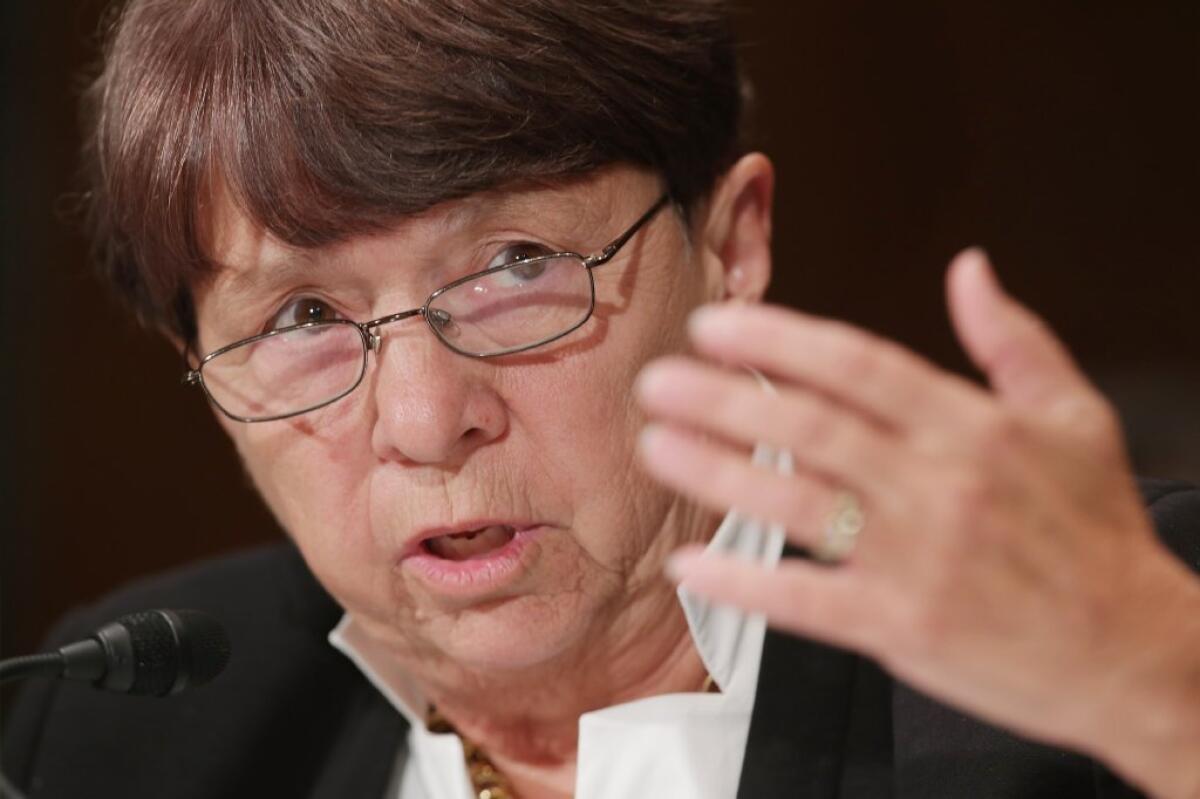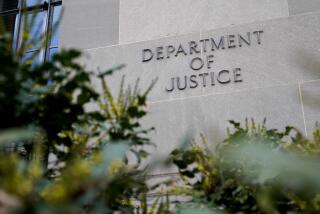SEC chief says enforcement will target individuals’ misconduct first

- Share via
The Securities and Exchange Commission will shift course and focus on individuals’ misconduct before targeting the companies they work for, the agency’s chairwoman, Mary Jo White, said Thursday.
“Individuals tempted to commit wrongdoing must understand that they risk it all if they do not play by the rules,” White said during a speech to the Council of Institutional Investors in Chicago. “When people fear for their own reputations, careers or pocketbooks, they tend to stay in line.”
The SEC has faced criticism from lawmakers, investors and others for its failure to punish high-ranking executives for misdeeds that led to the 2008 financial crisis and for allowing companies to resolve cases without admitting blame.
PHOTOS: The 10 most dangerous jobs
White, 65, a former federal prosecutor who was sworn in as the 31st chair of the SEC in April, has shifted course and obtained admissions of wrongdoing in cases against hedge-fund manager Philip Falcone and banking giant JPMorgan Chase & Co.
Focusing on individuals is another shift.
“I want to be sure we are looking first at the individual conduct and working out to the entity, rather than starting with the entity as a whole and working in,” White said. “It is a subtle shift, but one that could bring more individuals into enforcement cases.”
If individuals are not targeted, companies can view monetary penalties for wrongdoing as “a cost of doing business made good by cutting a corporate check,” White said. That’s why the people who made the decisions to violate securities laws need to be punished personally, she said.
“When we do bring charges against individuals, we also need to consider all the possible remedies to prevent future wrongs,” White said. “One of the most potent tools the SEC has is a court order imposing a bar on an individual -- a bar from, for example, working in the securities industry or serving on the board of a public company. Such an order not only punishes past actions, but also can reduce the likelihood that the defendant can defraud and victimize the public again.”
ALSO:
Most Americans doubt Fed’s ability to boost growth, poll finds
Collection agency fined $1 million for unlawfully texting debtors
Jobless claims near six-year low after computer glitches are fixed
Follow Stuart Pfeifer on Twitter
More to Read
Inside the business of entertainment
The Wide Shot brings you news, analysis and insights on everything from streaming wars to production — and what it all means for the future.
You may occasionally receive promotional content from the Los Angeles Times.











